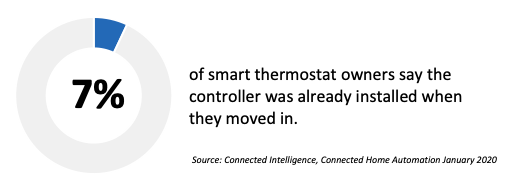
A More Private Nest to Roost In
Jumping on the privacy bandwagon of late, Google announced that it is adding new security measures to Nest accounts, including those that have not yet migrated over to Google. Starting in the Spring, all Nest users who haven’t enrolled in two-factor authentication or migrated to a Google account will be required to verify anyone attempting to log in via a six-digit code that arrives to your email. Google also added reCaptcha Enterprise, which detects automated attacks and defends against them, to Nest accounts (Google accounts already had this).
The NPD Take:
- In the blog post that announced these changes, Google also listed out several pointers and best practices for keeping their accounts safe. In today’s world of connected devices, any proactive outreach brands can do to educate their consumers is a win – because, even though those of us in tech might find it hard to believe, many consumers are not aware of safeguards like two factor authentication. Now let’s just hope consumers actually read the Google blog…
One Person’s Trash Is Another’s Treasure
I’ve happily just discovered that I’m not the only person who gets confused trying to decide which piece of trash goes into which bin. A company called CleanRobotics recognized this confusion among a wider group of people than just me, and created the TrashBot. TrashBot is a robotic waste bin that uses a combination of cameras, sensors, robotics, algorithms, and AI to automatically sort the piece into the correct internal bin. As recycling regulations change, the TrashBot can automatically update.
The NPD Take:
- Even when someone (like me) is diligently trying to do their best to recycle, there is a good chance they are doing it wrong. And this has become a big problem – China stopped accepted recyclables from other countries because contamination rates were so high. The first bins are designed for high volume locations (airports, train stations), and will soon be followed by smaller versions for cafes and offices. Sadly there is no word yet that a household bin will become available, but if it were…this would be a great example of smart home technology that genuinely solves a need.
High Performance HomeKit Homes
Planned community and new home builder Landsea has partnered with Apple to put cameras, thermostats, locks, AppleTV, and other smart home devices into new homes – new homes in California and Arizona, that is. Along with the installation of all the gadgets comes “high touch” customer service with an individualized training session. Landsea says that there are no additional costs for the homes, and the homes also include energy efficient appliances and lighting.
The NPD Take:
- Two states out of 50 is a small footprint (though the company is also building some property in Boston and metro NYC). Of course there are other builders out there that are also – or will be – doing similar types of builds. Over time, this model of “smart from the start” will become increasingly common, which will add a new challenge the DIY retail model (in addition to the competition it faces today from professional security companies).